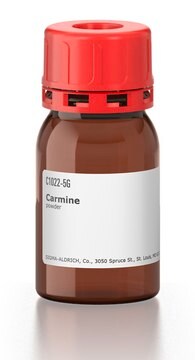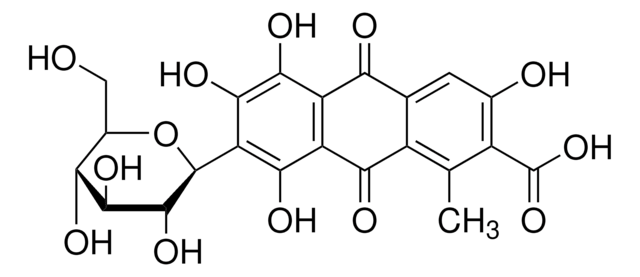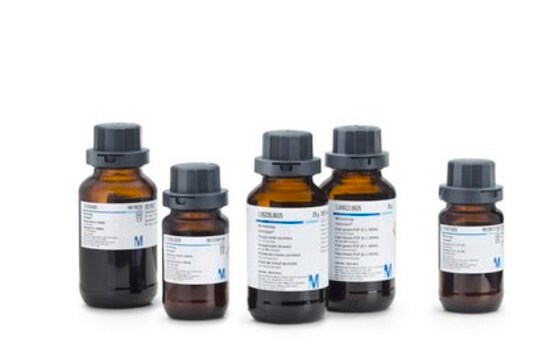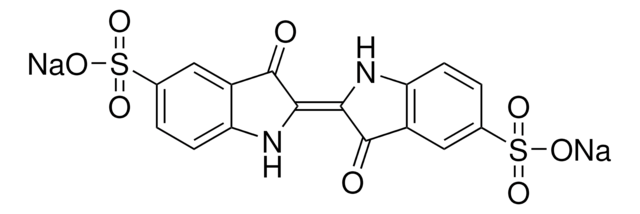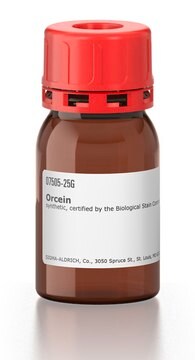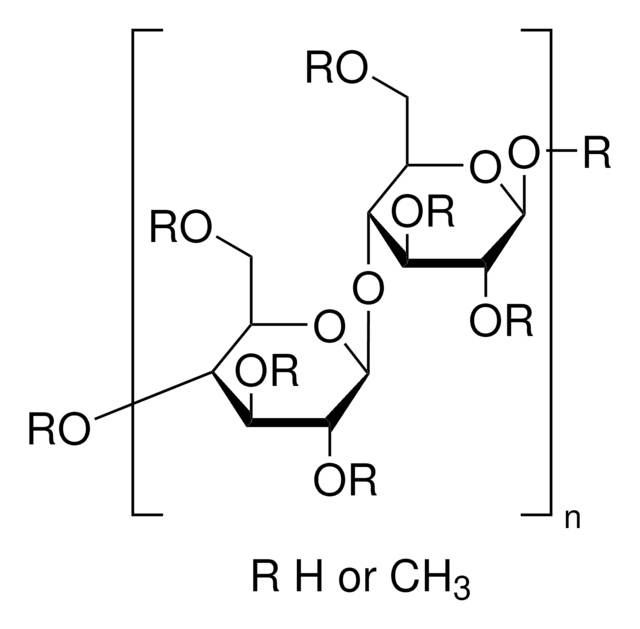C6152
Carmine
Dye content: minimum not established , certified by the Biological Stain Commission, powder
Synonym(s):
Alum lake of carminic acid, Cochineal, Nacarat, Natural Red 4
About This Item
Recommended Products
Product Name
Carmine, certified by the Biological Stain Commission
grade
certified by the Biological Stain Commission
Quality Level
form
powder
composition
Dye content: minimum has not been established
color
red
solubility
1 mg/mL, red (2 N NH4OH)
application(s)
diagnostic assay manufacturing
hematology
histology
storage temp.
room temp
InChI
1S/C22H20O13/c1-4-8-5(2-6(24)9(4)22(33)34)13(25)10-11(15(8)27)16(28)12(18(30)17(10)29)21-20(32)19(31)14(26)7(3-23)35-21/h2,7,14,19-21,23-24,26,28-32H,3H2,1H3,(H,33,34)
InChI key
DGQLVPJVXFOQEV-UHFFFAOYSA-N
Looking for similar products? Visit Product Comparison Guide
General description
Application
Suitability
Storage Class Code
11 - Combustible Solids
WGK
WGK 1
Flash Point(F)
Not applicable
Flash Point(C)
Not applicable
Personal Protective Equipment
Choose from one of the most recent versions:
Already Own This Product?
Find documentation for the products that you have recently purchased in the Document Library.
Customers Also Viewed
Our team of scientists has experience in all areas of research including Life Science, Material Science, Chemical Synthesis, Chromatography, Analytical and many others.
Contact Technical Service